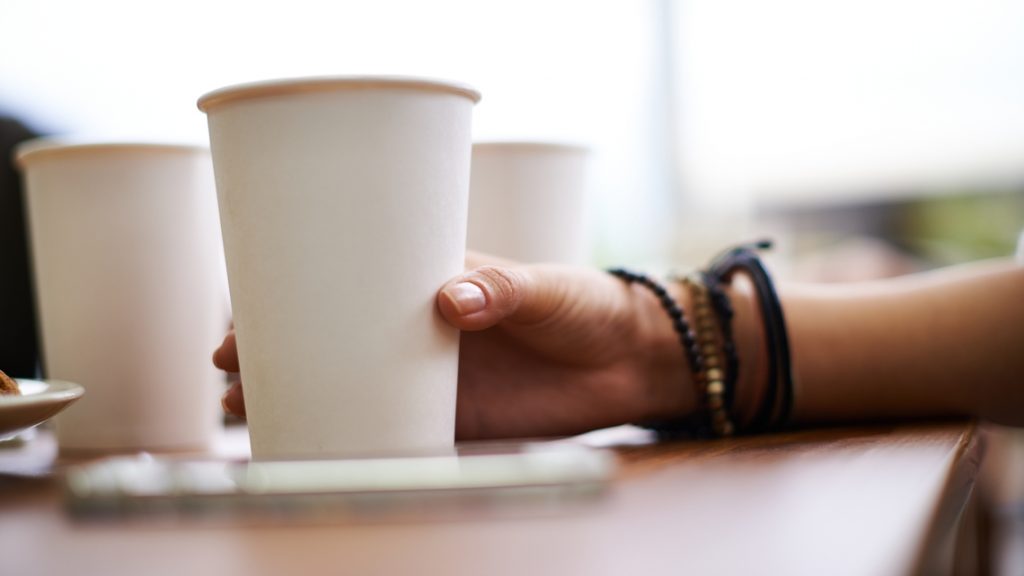
News
Packaging
Technology allows for wider coffee cup recycling
May 25, 2018 By P&PC staff
 Water-based polymers will allow paper coffee cups to be recycled.
Water-based polymers will allow paper coffee cups to be recycled. May 25, 2018 – Water-based polymers are allowing disposable paper cups a chance to be recycled and not bog down landfille sites. BASF has developed a technology that doesn’t interfere with the paper repulping process and allows cups to be sorted with regular paper.
Contrary to what many consumers believe, coffee cups are not wioely recyclable in North America. Paper cups have two basic parts—paper and polyethylene. Comprising only per cent of the whole container, the polyethylene liner is what forms the liquid barrier that keeps heat in and prevents the cup from getting soggy, but it’s also a contaminant in the paper waste stream.
Most contaminants can be removed, and paper mills can easily filter out unwanted substances like dirt, dyes and other residue during the repulping process. What makes the plastic liner different from other contaminants is that it breaks up into large flakes that pass through coarse pulping screens and clog the fine screens. The filter clogs are so disruptive to the equipment that most paper mills send the cups to the landfill automatically.
“What we can take from this is that people still want paper cups, so the solution can’t venture too far outside the box,” Katherine Grisson, industry marketing manager for printing, packaging and adhesives, BASF, said. “Designers are up against tight parameters: paper cups have to be recyclable, but they also have to be affordable, and work within existing infrastructure, and meet performance standards.”
It has been difficult for the industry to find the ideal cup. Polylactic acid (PLA) liners are made from plant-based resins that can be composted, but they are more expensive, and most retail locations aren’t equipped to compost.
Another strategy uses the same PE liner, but applies it differently by lightly gluing it onto the fibre instead of extruding it. The idea, however, assumes that MRFs have the equipment to process the cups correctly. If they don’t, it is functionally the same as trying to recycle existing cups on the market.
The water-based polymer solution is practical.
“It’s a practical alternative for formulators and converters, because they don’t need any additional equipment,” Grisson said. “It’s applied during the converting process at a comparable cost-in-use pricing. They can use their existing gravure printing or rod coating processes. It also eliminates the extrusion or liner gluing step required for polyethylene coated cups.”
Print this page